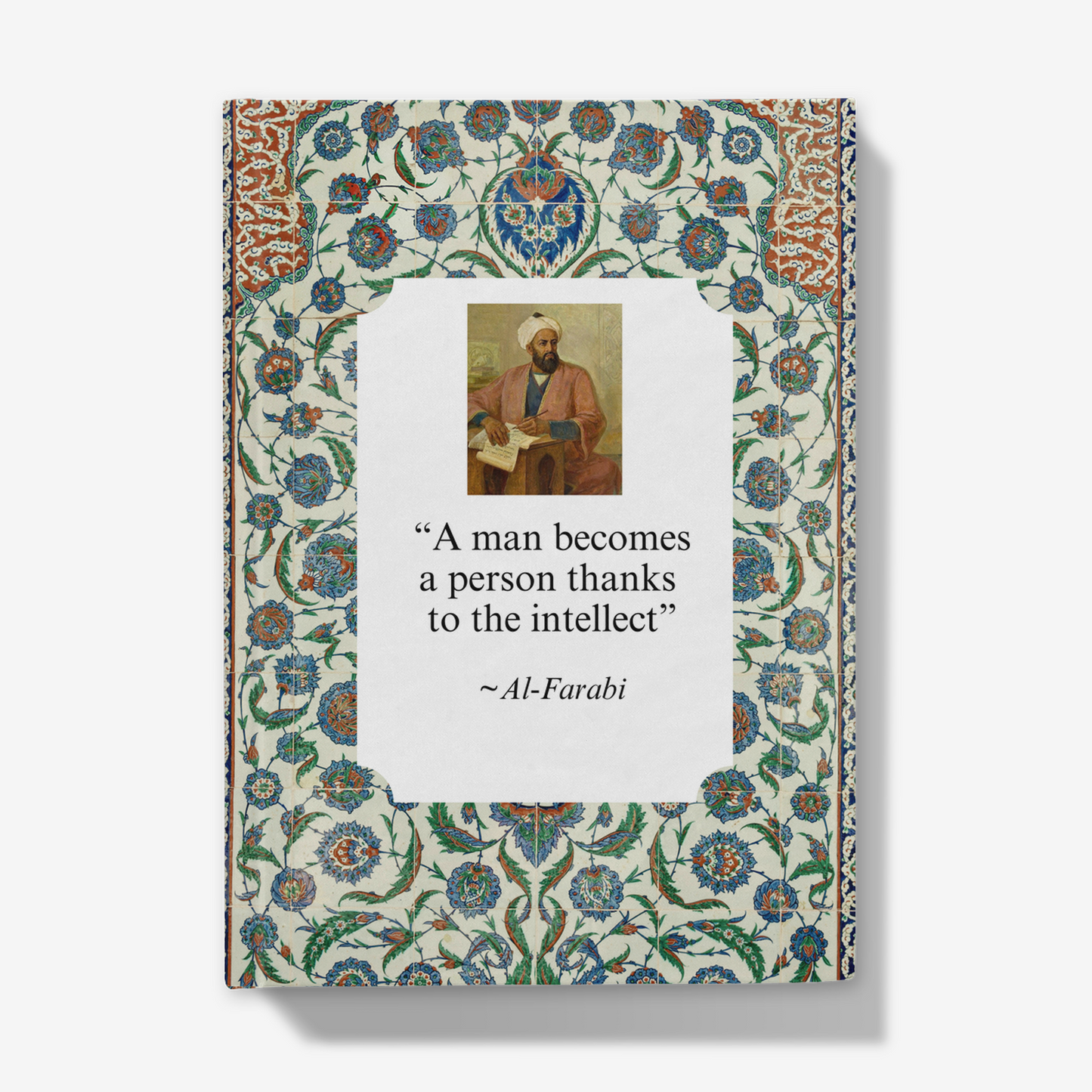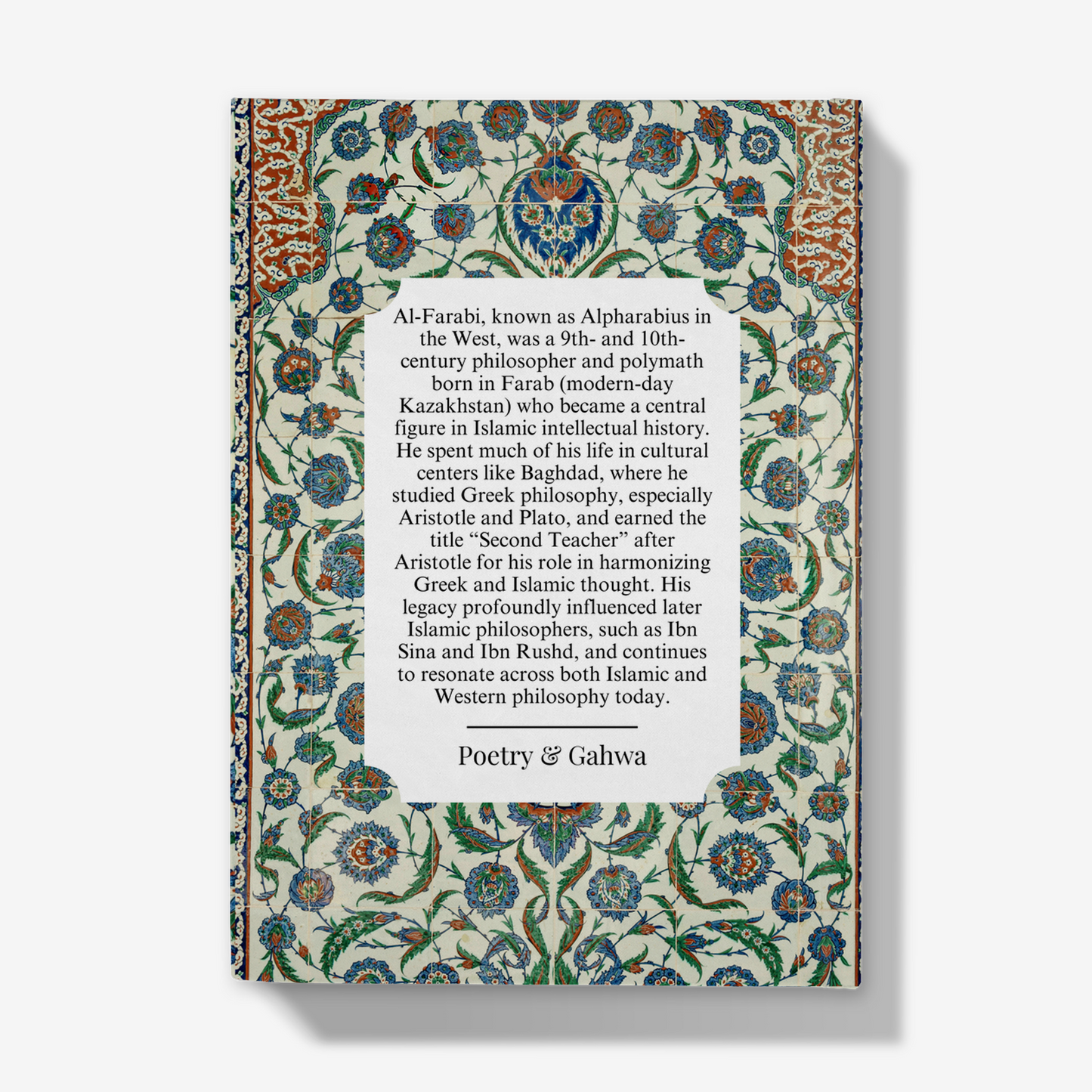Poetry & Gahwa
Al-Farabi: 'A man becomes a person thanks to the intellect' Journal
Al-Farabi: 'A man becomes a person thanks to the intellect' Journal
Couldn't load pickup availability
'A man becomes a person thanks to the intellect'
~Al-Farabi
Experience the art of writing with the Al-Farabi Journal, a timeless companion for those who cherish the elegance of thoughtful design.
Available in a convenient 5 x 7” format, this journal offers a robust 260gsm hardback cover with a chipboard construction and refined vinyl laminate finish, providing unmatched durability and sophistication.
Inside, 128 pages of premium 90gsm paper await your every word, idea, or sketch.
Choose from ruled, graph, or blank pages to best suit your unique creative pursuits.
With full-bleed print on the front and back covers, the Al-Farabi Journal is crafted to inspire and elevate your writing experience.
Whether for journaling, note-taking, or artistic exploration, this journal transforms the simple act of writing into an art form.
ABOUT AL-FARABI
Al-Farabi, also known as Alpharabius in the West, was a prominent philosopher and polymath who lived during the 9th and 10th centuries, approximately from 872 to 950 CE. Born in the region of Farab, now part of modern-day Kazakhstan, he spent much of his life in the cultural centers of the Islamic world, including Baghdad, which was a hub of intellectual activity during the Islamic Golden Age. Al-Farabi was deeply influenced by Greek philosophy, particularly the works of Aristotle and Plato, and he played a crucial role in transmitting and expanding upon their ideas within the Islamic intellectual tradition.
One of Al-Farabi’s most significant contributions was his synthesis of Greek philosophy with Islamic thought, earning him the title “Second Teacher,” after Aristotle. He wrote extensively on topics such as metaphysics, ethics, political philosophy, and logic. In his most famous work, *The Virtuous City* (*Al-Madina Al-Fadila*), he outlined his vision of an ideal society governed by a philosopher-king, much like Plato’s *Republic*. Al-Farabi emphasized the importance of knowledge and virtue in leadership, arguing that the well-being of a society depends on the moral and intellectual character of its rulers.
The wisdom in Al-Farabi’s work lies in his belief in the harmonious relationship between philosophy and religion, which he saw as complementary paths to the same ultimate truth. He believed that reason and revelation were not in conflict but could work together to guide individuals and societies toward a higher understanding of the world. His emphasis on ethics, the role of wisdom in governance, and the pursuit of knowledge as a means of achieving happiness continue to resonate in both Islamic and Western philosophical traditions today. Al-Farabi’s legacy shaped the development of Islamic philosophy and influenced later scholars, including Ibn Sina (Avicenna) and Ibn Rushd (Averroes).



